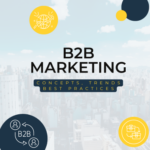A lead is an individual who shows interest in your business by sharing their contact information, such as an email address or phone number. Understanding leads is crucial for both marketing and sales teams as it aligns their efforts toward increasing revenue. Marketers generate leads, and sales teams convert them into paying customers, enhancing the efficiency of the sales process.
Moreover, generating leads is the first step in building relationships with potential customers, turning strangers into loyal clients. This process is essential for business growth and sustainability, helping attract and retain customers consistently.
At The Zulfis, we specialize in top-tier lead generation and list-building services. With over a decade of experience, we excel in attracting and converting high-quality leads, ensuring exceptional value with every engagement.
What is a Lead?
In simple terms, a lead is an individual or organization interested in what your business is selling. Typically, they indicate this interest by sharing their contact information, such as an email address, phone number, or social media account. Leads are the lifeblood of any business because they represent potential future customers.
Criteria for Identifying a Lead
A lead is typically identified through their actions and behaviors. Here are some common criteria:
- Engagement with Your Content: Individuals who interact with your blog posts, social media updates, or website content.
- Contact Information Submission: People who fill out forms on your website, sign up for newsletters, or participate in surveys.
- Event Participation: Attendees of webinars, live events, or workshops your business hosts.
- Product Interest: Individuals who request information about your products or services, download resources like eBooks, or start a free trial.
Examples of Leads
- Jane Doe signed up for a webinar on digital marketing hosted by your company.
- John Smith downloads an eBook about effective lead generation from your website.
- A visitor to your website fills out a contact form to get more information about your services.
- A business professional follows your company’s LinkedIn page and frequently engages with your posts.
Understanding and identifying leads is essential for crafting targeted marketing strategies and improving sales. By recognizing the behaviors and actions that signify interest, businesses can better focus their efforts on nurturing these potential customers, ultimately leading to higher conversion rates and business growth.
What is Lead Generation?

Definition and Purpose
The process of drawing in and turning strangers and prospects into people who have expressed interest in your business's goods or services is known as lead generation. To be clear, this procedure entails a range of marketing techniques intended to pique potential clients' attention and obtain their contact details. The ultimate objective is to steer these leads through the sales funnel and nurture them until they become paying clients.
Common Lead Generators
Lead generators are tools or strategies that help businesses capture interest from potential customers. Specifically, here are some effective lead generators:
Job Applications
For instance, when potential employees apply for jobs at your company, they provide their contact information and express interest in your business. While primarily aimed at recruiting, job applications can also provide leads for other business opportunities.
Blog Posts
Moreover, informative and engaging blog posts attract visitors to your website. By offering valuable content, you can encourage readers to subscribe to your newsletter or download additional resources, thus turning them into leads.
Social Media Channels
Additionally, platforms like Facebook, Twitter, LinkedIn, and Instagram are excellent for generating leads. By sharing compelling content, engaging with followers, and using targeted ads, you can drive traffic to your website and capture leads.
Discounts and Coupons
Furthermore, offering discounts and coupons can entice potential customers to provide their contact information. This strategy works well for e-commerce businesses looking to attract new customers.
Live Events
Similarly, hosting live events such as webinars, workshops, or seminars can generate leads by requiring attendees to register with their contact information. These events also allow you to showcase your expertise and build relationships with potential customers.
Online Content
Finally, providing valuable online content like eBooks, whitepapers, and case studies can attract potential customers. You can collect contact information and generate leads by gating this content behind a form.
Put it all up, one of the most important phases in the sales process is lead generation. Businesses may draw in new consumers and create a pipeline of prospects to nurture and turn into devoted customers by utilizing a variety of lead generators.
Contact Us Today! We're Here to Assist You with All Your Lead Generation Needs.
Importance of Generating Leads
Building Relationships
Generating leads is the first step in building meaningful relationships with potential customers. When a visitor expresses interest in your business by sharing their contact information, it opens a communication channel. This allows you to provide them with valuable information, answer their questions, and better understand their needs. Over time, these interactions build trust and establish a relationship that can lead to a sale.
Conversion from Visitor to Customer
Creating leads is essential to turning visitors into paying clients. Buyers are often at the initial stages of the process when they first visit your website or interact with your content. You lead them through the sales funnel by getting their contact information and then nurturing them with offers and material that is relevant to them. As a result, there is a greater chance that they will make a purchase and stick around.
The Role of Lead Generation in Business Growth
Lead generation is a fundamental component of business growth. Specifically, it helps ensure a steady stream of potential customers who can be converted into paying clients. Here are some ways lead generation contributes to business growth:
- Increases Sales Opportunities: More leads mean more opportunities for sales. By generating many leads, businesses can increase their chances of making more sales.
- Improves ROI: Targeted lead generation efforts ensure that marketing resources are used efficiently, resulting in a higher return on investment (ROI).
- Supports Business Expansion: A robust lead generation strategy can help businesses expand into new markets and reach a broader audience.
- Enhances Market Position: Consistently generating high-quality leads helps establish a business as a leader in its industry, enhancing its market position and reputation.
In summary, generating leads is essential for any business looking to grow and succeed in a competitive market. By focusing on building relationships, converting visitors into customers, and driving business growth, lead generation becomes a powerful tool for achieving long-term success.
The Lead Generation Process
Steps of the Process
Lead generation involves several key steps designed to attract potential customers and convert them into leads. Here's a breakdown of the steps:
Attracting Visitors
The first step in the lead generation process is to attract visitors to your business. This can be achieved through various digital marketing channels such as social media, search engine optimization (SEO), content marketing, and paid advertising. Ultimately, the goal is to draw people to your website or online platform where they can learn more about your offerings
Engaging with a CTA
Once visitors are on your website or platform, the next step is engaging them with a compelling call-to-action (CTA). Specifically, a CTA is a prompt that encourages visitors to take a specific action, such as signing up for a newsletter, downloading a free resource, or attending a webinar. Effective CTAs are clear and concise and offer value to the visitor.
Landing Page Conversion
After clicking on a CTA, visitors are typically directed to a landing page. A landing page is a dedicated webpage designed to capture visitors' information through a form. This page should be focused on a single offer and clearly explain the benefits the visitor will receive. An attractive design, persuasive copy, and a simple form are essential for a high-converting landing page.
Collecting Contact Information
The form on the landing page is where visitors provide their contact information, such as their name, email address, and phone number. This information is crucial for following up with the lead and nurturing them through the sales process. Therefore, it's important to keep the form short and ask only for the necessary information to avoid overwhelming visitors.
Nurturing and Following Up
The visitor becomes a lead as soon as contact details are obtained. For additional nurturing and follow-up, this data is then forwarded to the sales team or inserted into a customer relationship management (CRM) system.
To summarise, utilizing this methodical approach to generate leads guarantees that you draw in interested parties, hold their attention, and obtain their contact details in order to turn them into prospective clients.
Check out our blog for the latest updates and actionable advice on lead generation and business growth. Don't miss out – join our community now!
Generating Leads on LinkedIn
Optimizing Your Profile
Your LinkedIn profile is often the first impression potential leads will have of you and your business. Therefore, to make the best impression, ensure your profile is complete, professional, and aligned with your brand message. Specifically, use a high-quality profile picture, create an engaging headline, comprehensively detail your work history, and write a compelling summary highlighting your expertise and value.
Making Strategic Connections
LinkedIn's power lies in its network. Thus, connect with industry professionals, potential clients, and thought leaders in your field. By strategically expanding your network, you increase the chances of your content being seen by the right people, generating more leads.
Engaging with Content
Actively engaging with content on LinkedIn can significantly boost your visibility. For instance, like, comment on, and share relevant posts from others in your network. This positions you as an active and knowledgeable industry member, attracting potential leads to your profile.
Creating Quality Content
Regularly posting insightful content that adds value to your target audience can establish you as a thought leader. Share industry insights, advice, case studies, and professional experiences. Over time, this will build your reputation and draw more leads who are interested in what you offer.
Utilizing LinkedIn Groups
Join LinkedIn groups related to your industry and participate actively in discussions. By being helpful and informative rather than sales-focused, you can build relationships with potential leads and position yourself as an expert.
Leveraging LinkedIn Ads
LinkedIn's advertising platform allows you to target your ads based on specific criteria like job title, industry, and company size. Consequently, this targeted approach helps you reach high-quality leads. Consider using different types of ads, such as Sponsored Content, Message Ads, Text Ads, and Dynamic Ads, to engage potential leads effectively.
Using LinkedIn Sales Navigator
LinkedIn Sales Navigator is a powerful tool for finding and engaging with the right prospects. It offers advanced search filters, lead recommendations, and the ability to save leads into a CRM. Utilizing this tool can significantly enhance your lead-generation efforts.
Posting Job Opportunities
Posting job opportunities on LinkedIn can attract potential leads interested in your business. These individuals may also be interested in your products or services, providing an additional channel for lead generation.
Hosting LinkedIn Events or Webinars
LinkedIn Events is an excellent way to engage your audience, especially when in-person connections aren't possible. By hosting webinars, panels, workshops, or other virtual events, you can connect with potential leads and showcase your expertise.
Using LinkedIn InMail
LinkedIn InMail lets you directly message anyone on LinkedIn, even if you're not connected. Personalized messages can be more effective at generating leads than standard connection requests, making InMail a valuable tool in your lead generation strategy.
Overall, producing leads on LinkedIn necessitates a methodical and steady strategy. You can draw in and convert high-quality leads by optimizing your profile, producing and interacting with high-quality content, making use of LinkedIn's tools and capabilities, and actively engaging in the network.

Elevate your business success with The Zulfis®! With over a decade of expertise in lead generation and list building, we deliver exceptional value. Experience our premium services with a complimentary sample, no commitment required. Partner with us to drive your business growth—start today!
Why is a Large Lead Database Important?
Reaching Potential Customers
A large lead database allows businesses to reach a vast number of potential customers. With more leads, businesses have a larger pool to draw from when promoting products, services, and special offers. This increased reach can lead to higher conversion rates and more sales.
Investor and Employee Attraction
Having a substantial lead database is also attractive to investors and potential employees. Investors often look at the size and quality of a company's lead database to gauge the business's market potential and growth prospects. Similarly, a large lead database can attract top talent by demonstrating that the company has a strong market presence and a robust customer base.
Audience Size and Market Reach
A large lead database can illustrate the size of your audience and the reach of your market. It shows that there is significant interest in your business, which can be a strong selling point in various business scenarios, such as:
- Pitching to Investors: Demonstrating a large, engaged audience can help secure funding.
- Partnership Opportunities: Potential partners may be more interested in collaborating with a business that has a broad reach.
- Market Position: A substantial lead database can position your company as a leader in your industry, highlighting your ability to attract and maintain interest from many people.
A robust lead database is not just a collection of names and contact information; it is a strategic asset that can drive business growth, attract investment, and establish your company's position in the market. It provides a foundation for targeted marketing efforts, customer engagement, and long-term success.
When Can a Lead Be Misleading?
Quality vs. Quantity
Not all leads are created equal. For example, while having a large number of leads may seem beneficial, if those leads are not qualified, they can be misleading. Focusing solely on the quantity of leads can result in a database filled with contacts who have little to no interest in your product or service. Consequently, this can waste time and resources as your sales team chases unqualified leads, reducing overall efficiency and effectiveness.
Importance of Data Cleansing
Moreover, regularly cleaning your lead database is essential to ensure its quality. This involves removing duplicate entries, outdated contact information, and leads that have shown no engagement over a long period. Thus, keeping your database clean helps maintain its accuracy and effectiveness, ensuring your marketing efforts are directed toward genuine prospects.
Real-World Examples
Consider your own online behavior: you might provide your email address to access a free resource or enter a giveaway but have no real interest in the company's offerings. Similarly, some leads may sign up for a newsletter but never engage with any further communications. Here are some common scenarios where leads can be misleading:
- Freebie Seekers: Individuals who sign up solely to receive a free product or discount, with no intention of purchasing.
- Fake Information: Leads that provide incorrect or fake contact information to bypass a form.
- One-Time Shoppers: Customers who make a single purchase are not interested in becoming repeat buyers.
Impact on Business
Misleading leads can negatively impact a business in several ways:
- Wasted Resources: Time and money spent on unqualified leads could be better used on genuine prospects.
- Lower Conversion Rates: A high number of unqualified leads can skew conversion rate metrics, making it harder to assess the effectiveness of your marketing efforts.
- Sales Team Frustration: Chasing after unqualified leads can lead to frustration and burnout within your sales team, affecting their morale and productivity.
A lead can be a powerful asset when it is genuine and qualified. By focusing on lead quality, implementing regular data cleansing practices, and understanding your leads' behaviors, you can ensure your lead generation efforts truly benefit your business.
Common Uses for a Lead
Illustrating Market Interest
Leads are a clear indicator of market interest in your product or service. By tracking the number and source of your leads, you can identify which aspects of your offerings appeal to potential customers. This information helps you understand market demand and tailor your marketing strategies better to meet the needs and interests of your audience.
Sharing Promotions and News
Leads provide a direct line of communication to potential customers. Therefore, businesses can use this connection to share promotions, sales, and important company news. By sending targeted emails or messages to your leads about special offers or new products, you can encourage them to purchase and keep them engaged with your brand.
Demonstrating Popularity
A substantial list of leads can demonstrate your business's popularity and credibility. When pitching to investors or negotiating partnerships, showcasing a large, engaged lead database can be a compelling argument. It indicates significant interest in your business, which can boost confidence in your brand's potential for growth and success.
Making a Case for Investors and Funding
Leads are valuable when seeking investment or funding. Specifically, investors look for businesses with proven market interest and growth potential. A detailed lead database shows that your company can attract and maintain customer interest, making it an attractive investment opportunity. This data can support your case in securing the necessary funding to expand and scale your operations.
Demonstrating Popularity to Potential New Hires
A robust lead database can also attract potential employees. It shows that your company has a strong market presence and a consistent stream of potential customers. This can make your business more appealing to top talent looking for stable and promising opportunities.
Calculating the Number of Email Addresses Submitted
Tracking the number of email addresses and other contact information submitted helps businesses measure the effectiveness of their lead-generation efforts. Also, this data can provide insights into the most successful campaigns, allowing you to refine your strategies and improve future marketing efforts.
As a result, your company might gain a great deal by efficiently gathering and using leads. Leads are an essential resource that may propel your business's expansion and success, serving as a means of demonstrating market interest, obtaining funding, and drawing in talent.
Conclusion
Understanding and generating leads is crucial for business growth. In essence, a lead is a potential customer who shows interest by sharing contact information. Effective lead generation uses digital marketing, calls to action, and landing pages, with platforms like LinkedIn being especially useful for B2B.
Moreover, using both organic and inorganic methods ensures a steady stream of leads. A large, high-quality lead database helps reach a wide audience, attract investors, and secure top talent. Focusing on lead quality enhances efficiency.
Furthermore, generating and managing leads requires continuous attention. Aligning marketing and sales teams, regularly cleaning your lead database, and analyzing strategies ensure meaningful results. Consequently, this builds lasting relationships and converts leads into loyal customers.
At The Zulfis, we specialize in lead generation and list-building services. With over a decade of experience, we help you attract and convert high-quality leads, ensuring exceptional value in every engagement.
Check out our services and schedule a consultation right now to find out how we can help you achieve remarkable outcomes.



